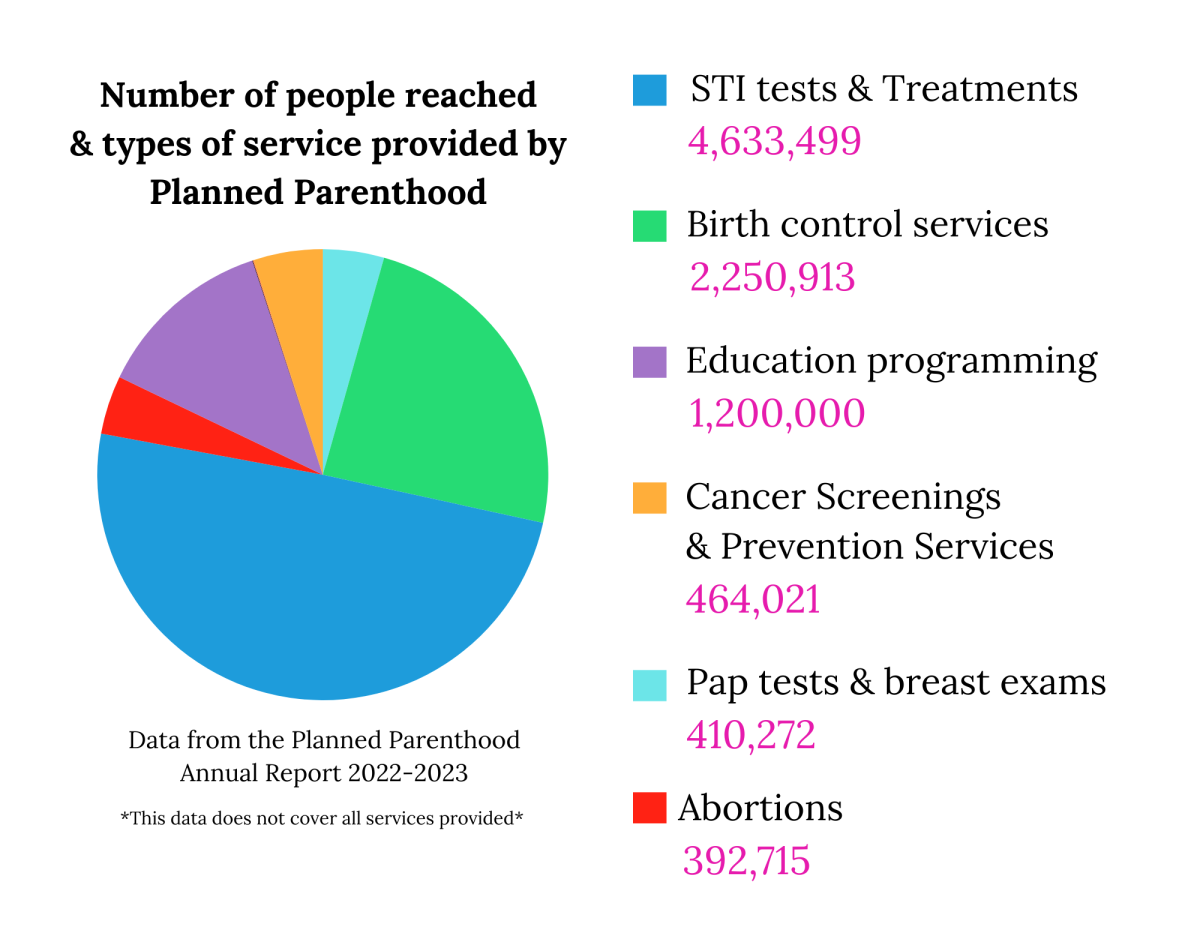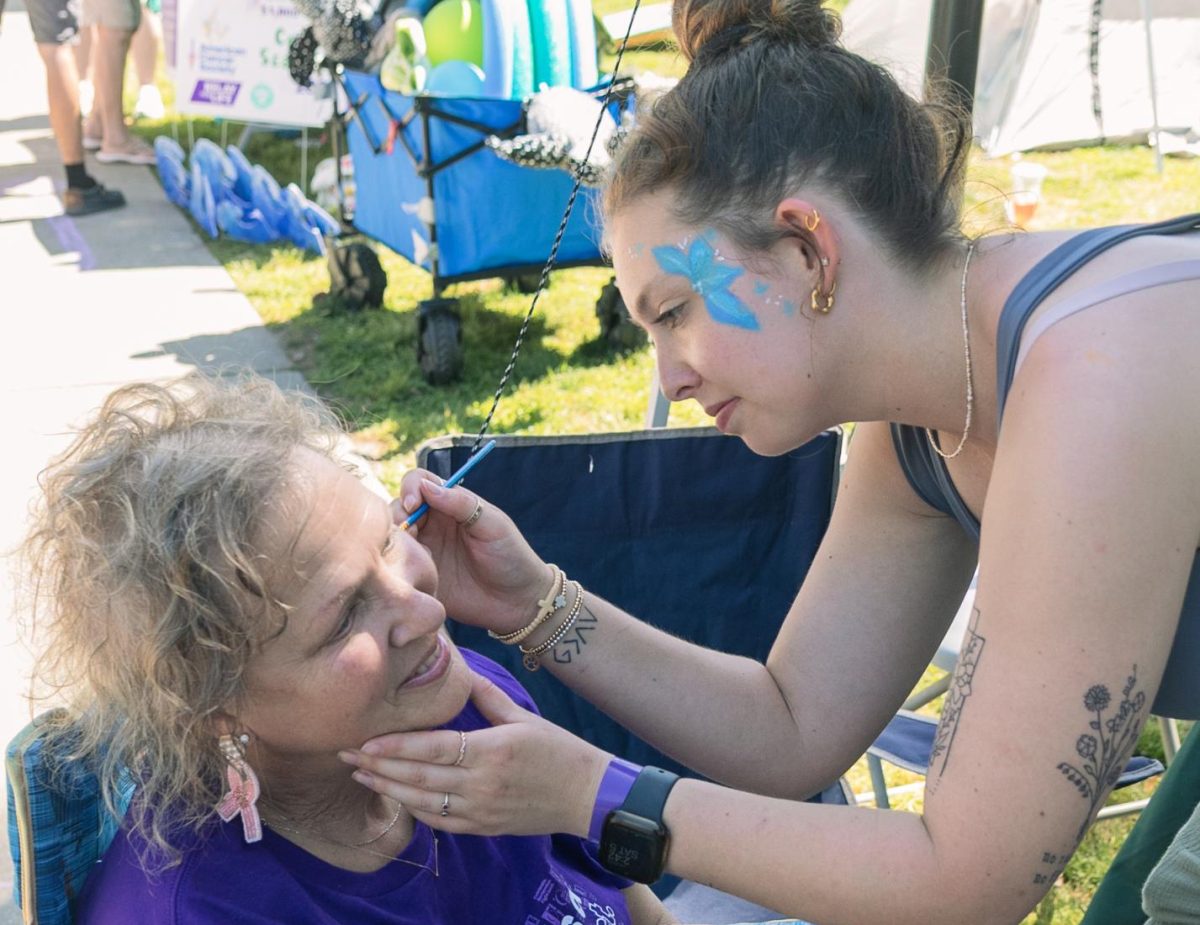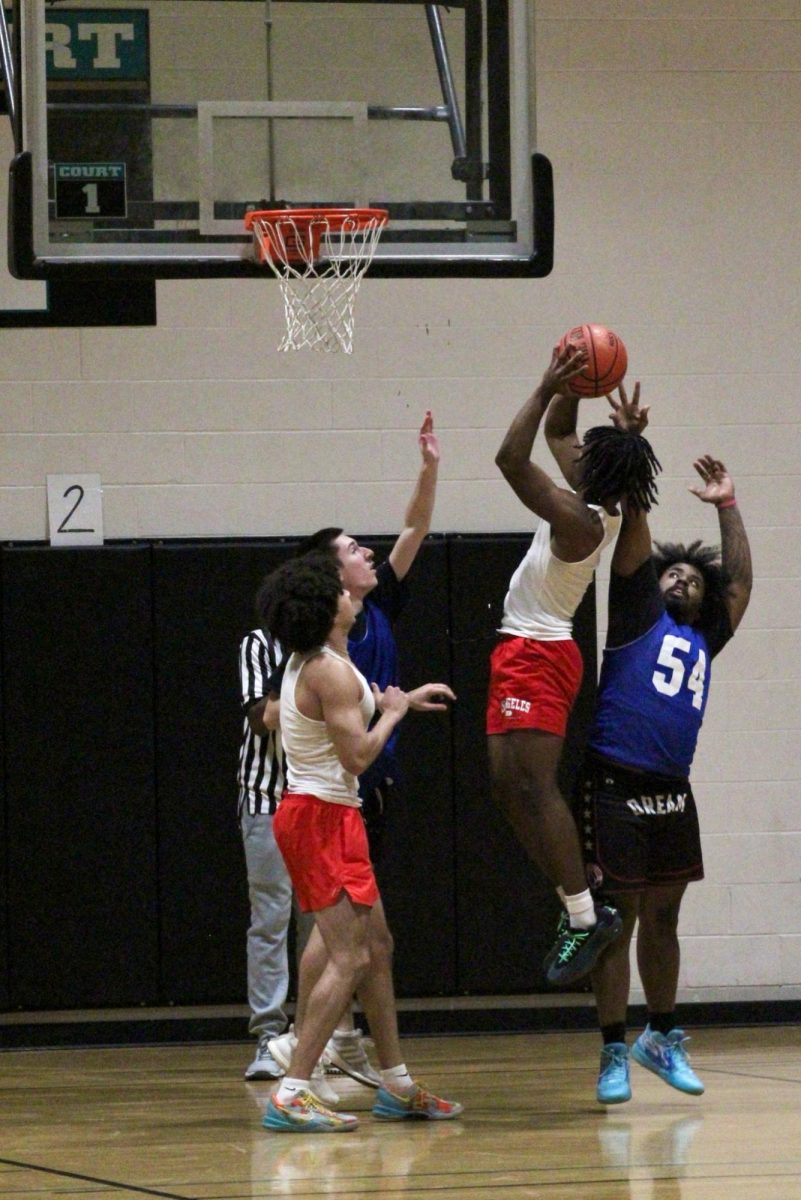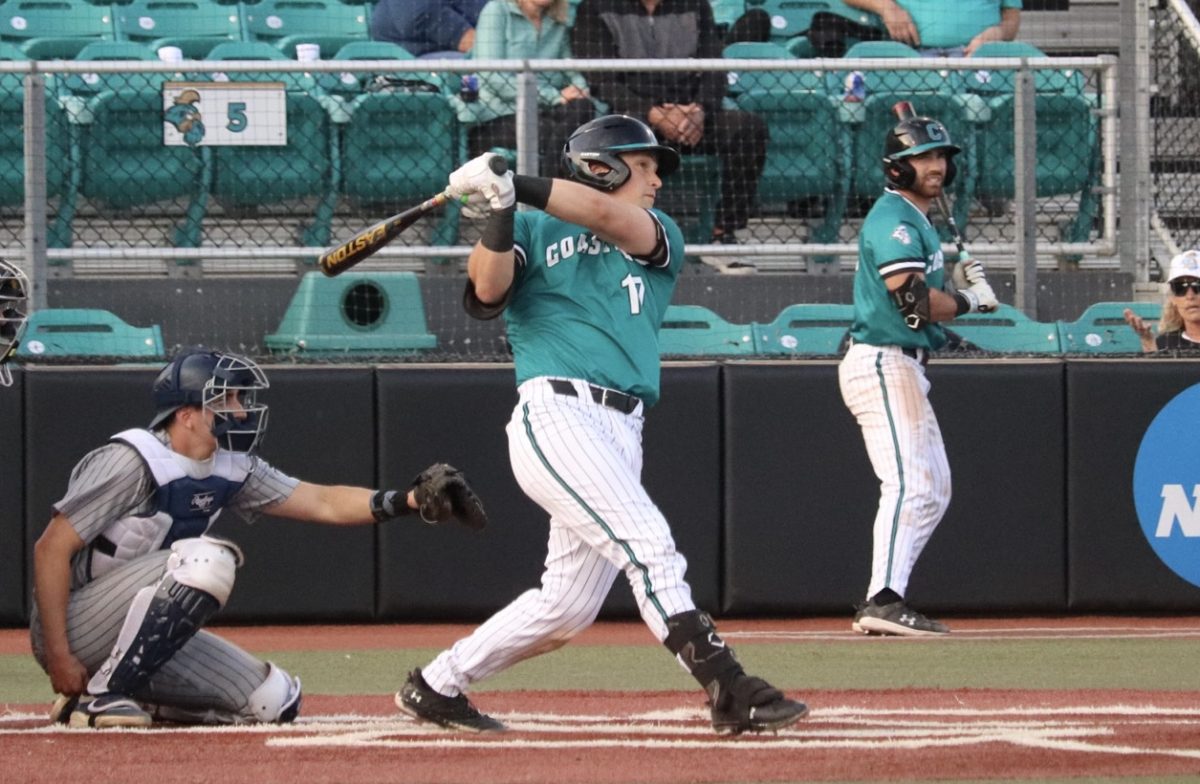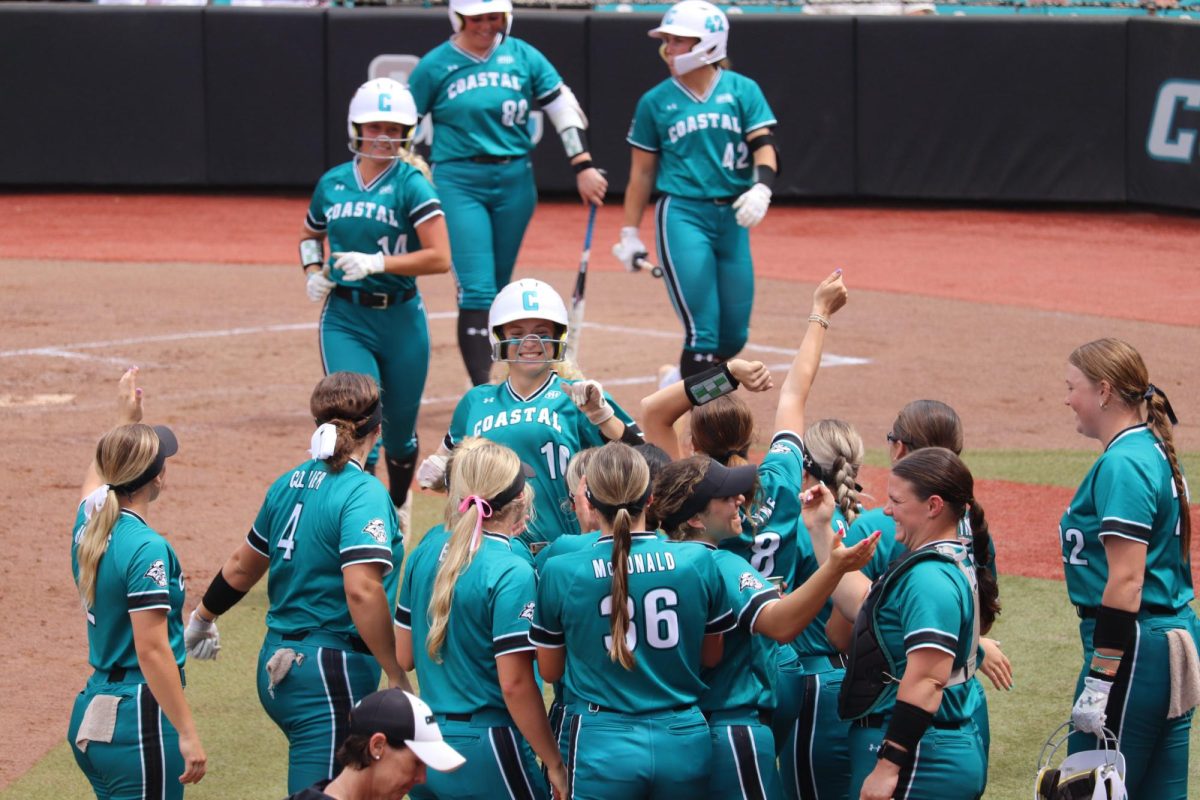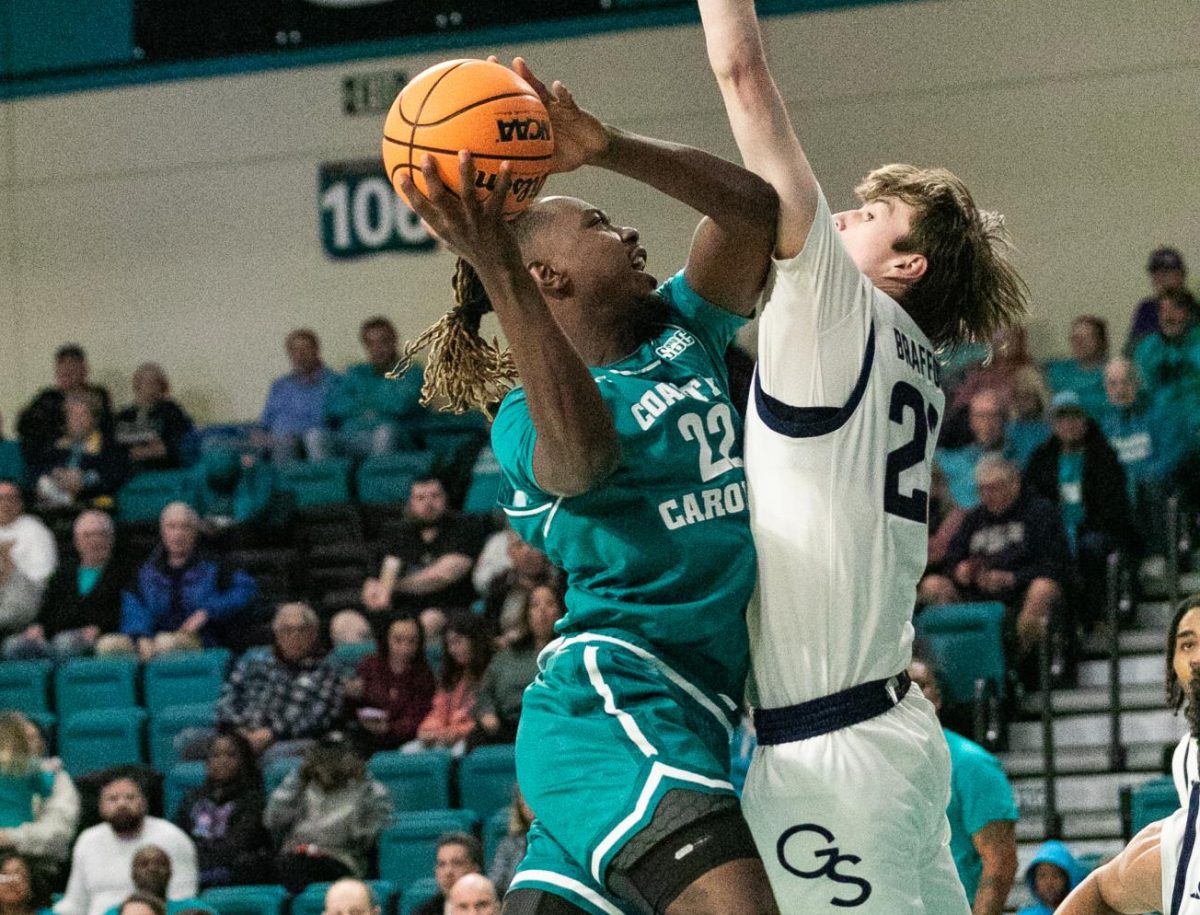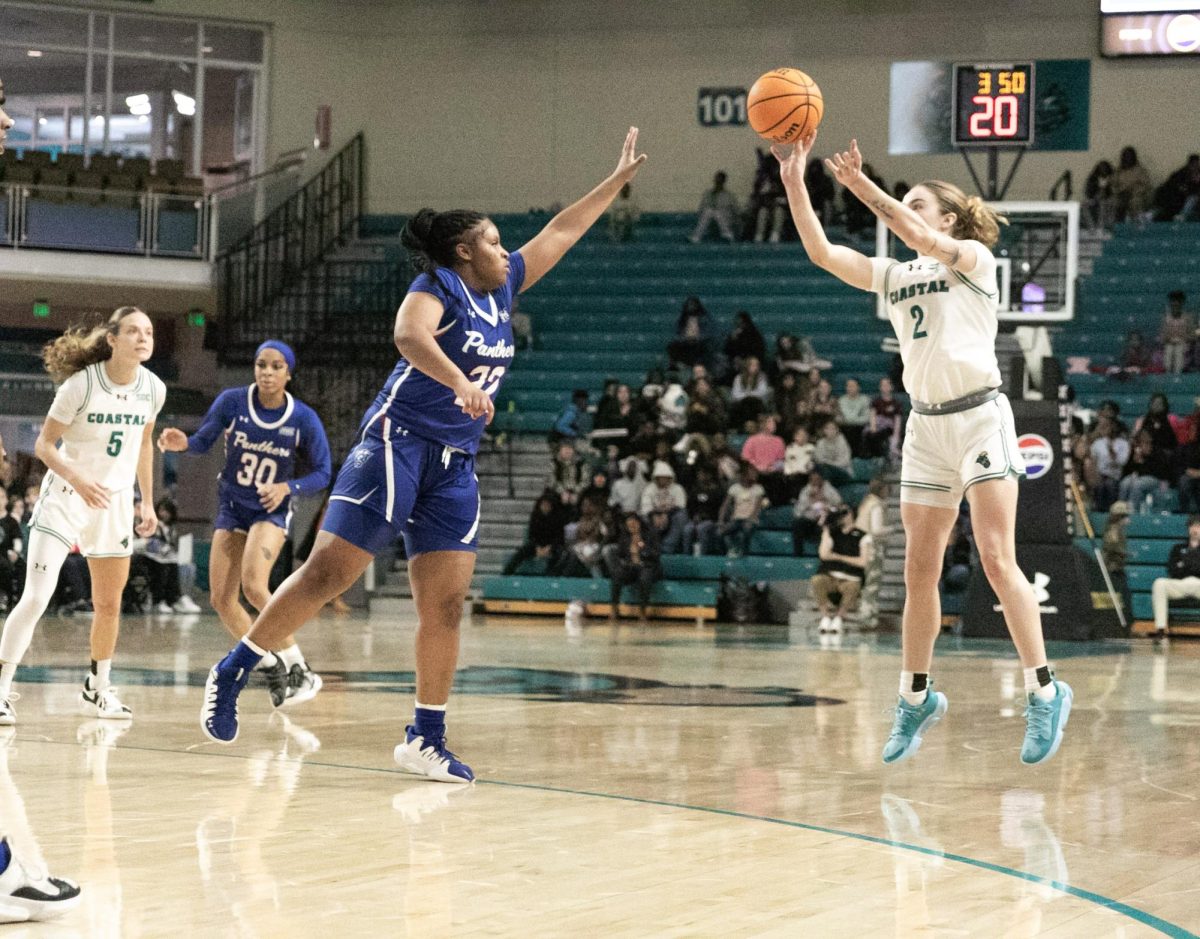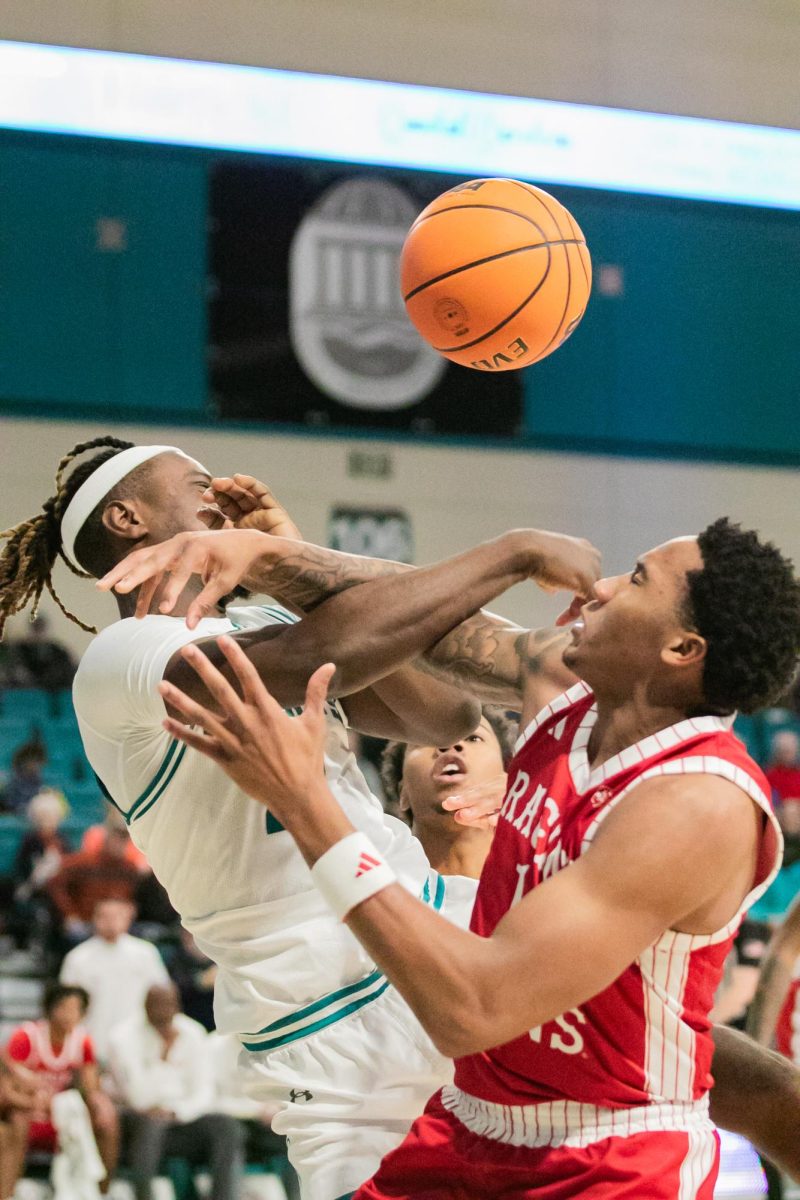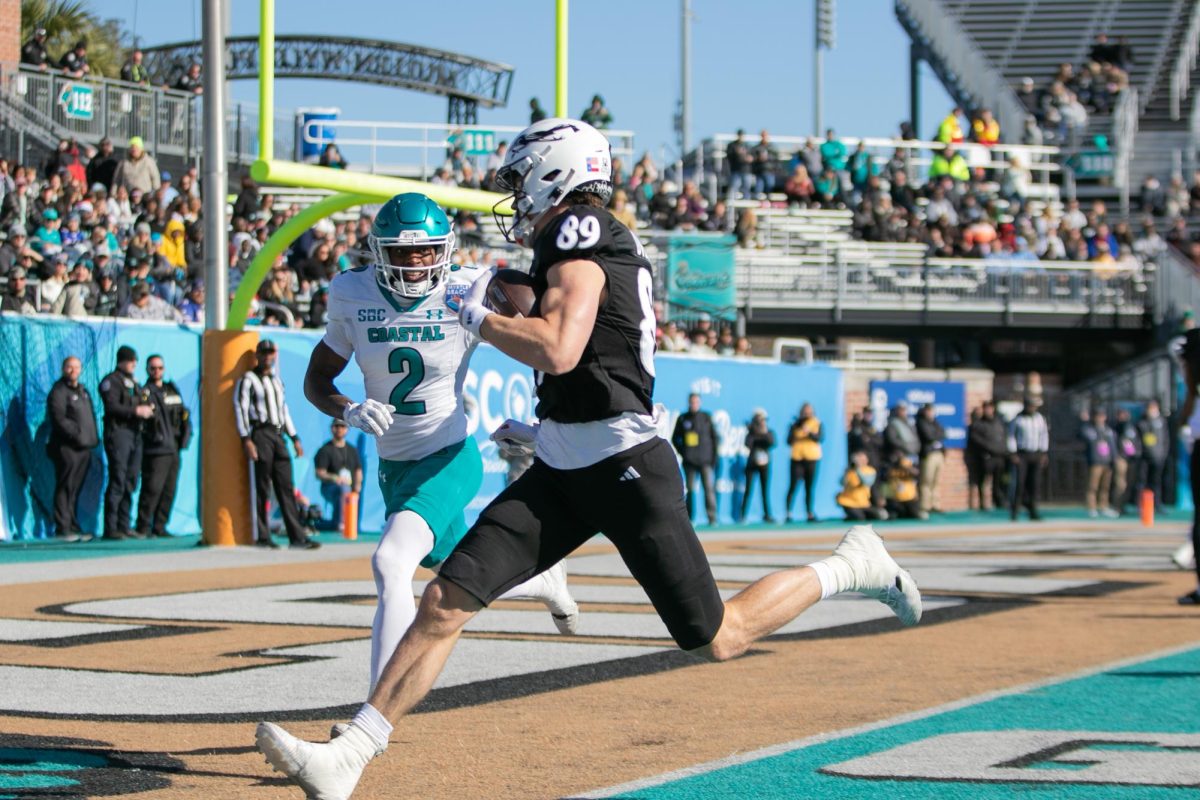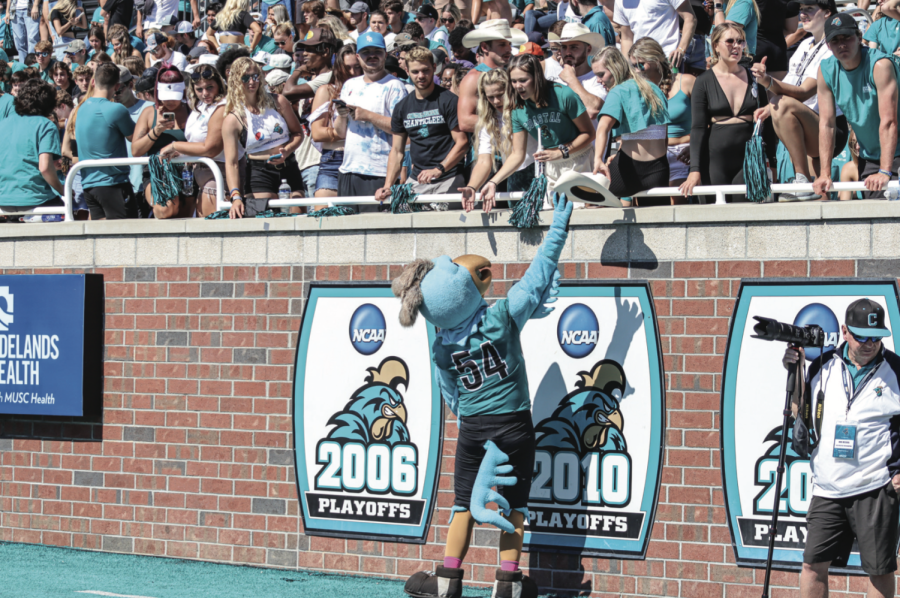Ethics of collegiate sports
Sports teams of all college levels at Coastal Carolina University celebrate wins together with the turnout of the crowd
Very few topics can unite and divide Americans quite like sports, specifically college teams.
The Jackson Family Center for Ethics and Values at Coastal Carolina University held a panel discussion called “The Ethics and Moral Values of Sports” on Oct. 12.
Fans often are caught between the scores of their teams, and which rival they will play next rather than considering the ethical costs of the sport itself. Not many people consider the ethics of adding such a passion- driven part of society to the complex environment of an institution of higher learning. While the exponential growth of sports culture within colleges and universities has come with its benefits, every coin has two sides.
Specifically the United States puts copious amounts of time, money and energy into every level of sports. From little league baseball to professional football, people of all ages are encouraged to participate in some level of competition. This practice, however, does more than keep kids entertained on the weekends.
Head coach of the Coastal Carolina University women’s basketball team Kevin Pederson said sports push athletes to be better than their competitors.
“When you’re a kid, a lot of times your first experience with failure, success, or just getting outside of your comfort zone comes in sports,” Pederson said. “For a lot of people, [sports] make you think a little bit differently and compete a little.”
Many benefits exist from a sociological perspective as well. While sports provide a vehicle of entertainment and escapism for fans, the reflection of many of the issues that arise in athletic culture can be seen in society on a much larger scale.
“I think sports serves as a microcosm of the society that it’s in, so you get to see a mirror for something that goes on. Sport becomes a place where we have to address [societal] issues because it’s on the front stage with social media and things of that nature,” Danny Malone Jr., assistant professor of sociology, said.
No competition can be this widespread without ethical concerns. Many have the primary concern regarding the lack of equity and equality in the competitive sports industry.
Emily Humbert, ethics fellow at the Jackson Family Center for Ethics and Values, said sports can be a locus of change but mirror these inequalities from the outside world.
“There’s a way in which we expect certain bodies, black or brown bodies and female bodies, to operate and when they push against that, they are going to be called out,” Humbert said. “I don’t think these issues don’t necessarily have to be separate. I think they are very much feeding off of each other and we just have to find connections.”
Over the past 30 years, there has been a significant rise in the popularity of collegiate sports. Certain universities and colleges now have the ability to brand themselves based on their sports teams and capitalize on the success of their athletic programs.
This capitalization has led to a rise in admission rates for athletically successful higher education institutions, but the question of whether this process should continue can be answered by asking the very people at which these advertisements are aimed at, which are students.
“CCU is a big example of the growth of college sports. Five years ago, no one considered Coastal for their athletic department,” Lillian Wall, sophomore Jackson scholar, said. “But now, we’re considered a football school. I could never be a student athlete, but I have a lot of respect for what they do.”
Along with the growth of collegiate sports comes the growing debate over whether student athletes are being exploited, and if so, what can be done to rectify the problem. Many people say student athletes should receive some form of compensation for their efforts and abilities, while others argue that receiving scholarships should be sufficient.
“When a student athlete receives a [full scholarship], that means they’re consuming a lot of finances. [Those finances] don’t go to just their tuition, room and board, but that also goes into their sports medicine criteria. They’re receiving basically free health care,” Cari Rosiek, associate athletic director said.
Regardless of whether they add to or hinder higher learning, collegiate sports aren’t going to disappear anytime soon. There will always be positive and less positive aspects to anything remotely competitive, but many can agree that Teal Nation wouldn’t be the same without its athletic department.


